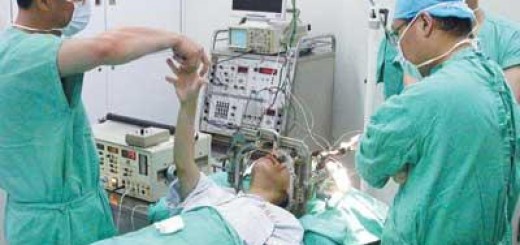Renal cell carcinoma (RCC) is a kidney cancer that originates in the lining of the proximal convoluted tubule, a part of the very small tubes in the kidney that transport waste molecules from the blood to the urine. RCC is the most common type of kidney cancer in adults, responsible for approximately 90-95% of cases. It has been described as one of the deadliest of cancers affecting the genitourinary tract.
Either partial or complete removal of the affected kidney(s) remains the mainstay of curative treatment. for RCC. RCC is relatively resistant to radiation therapy and chemotherapy, making it a thorny clincal problem. Therefore, to find a more effective chemo drug becomes extremely imperative.
In 2010, a research on Journal of Nantong University(Medical Sciences) (2010, 05) reported that 20(S)-protopanaxadiol (a most potent ingredient in ginseng) is able to inhibit the growth and further induce apoptosis (programmed cell death) of human embryomic kidney 293 cells (a transformed kidney cells to mimic the biological behavior of kidney cancer cells), indicating it potential to be developed into chemo drugs for renal cell carcinoma.
The following is the abstract of the research publication:
Title: Inhibition of 20(S)-protopanaxadiol on cell growth of human embryomic kidney 293 cells
Objective: To study the effects of 20 (S)-protopanaxadiol (PPD) on the on cell growh of HEK-293 cell line.
Methods: HEK-293 cell line was treated with PPD.The activity of HEK-293 cells was determined with MTT assay. The effects of PPD on apoptosis rate were observed by the Hoechst 33258 dye and DNA ladder.
Results: 20 (S)-Protopanaxadiol could inhibit the proliferation of HEK-293 cell, IC50 values was 21.8 μmol/L. The morphological changes were observed in the nuclei of HEK-293 cells treated by PPD. The DNA Ladders bands were detected by 1% agrose gel electrophoresis.
Conclusion: 20(S)-Protopanaxadiol could inhibit the proliferation of HEK-293 cell in a dose dependent manner.












































